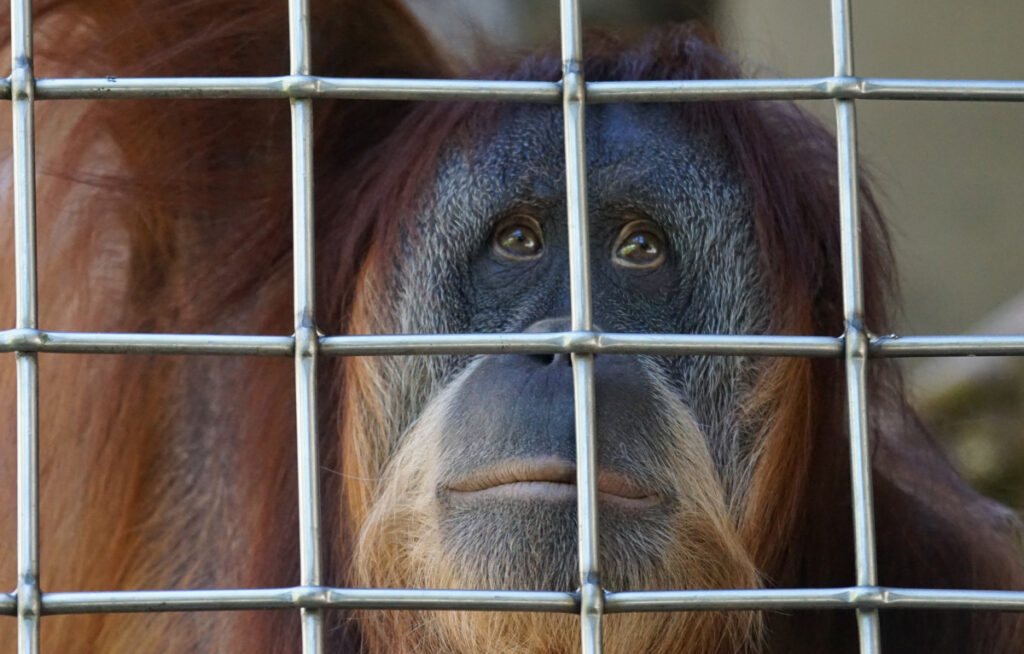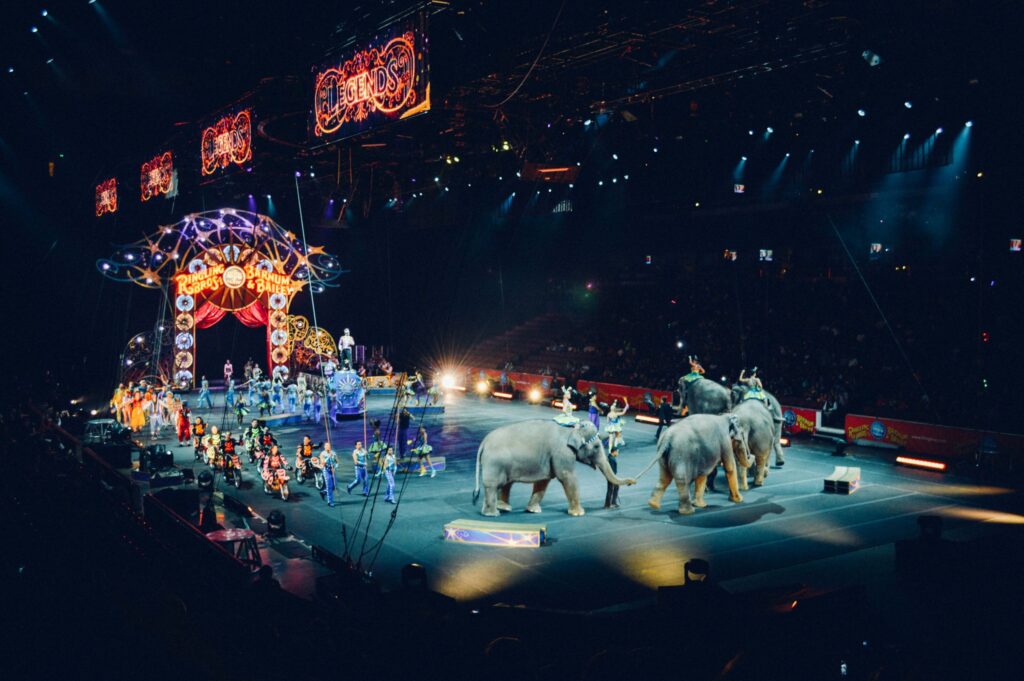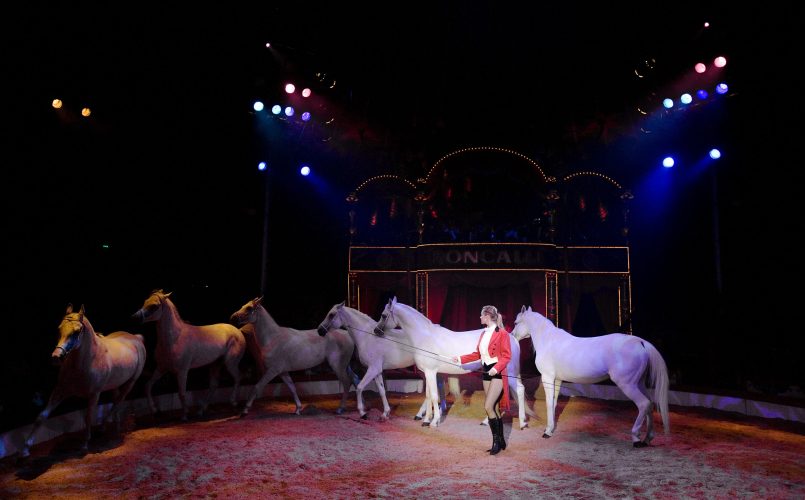My eye-opening episode with Alokparna Sengupta, the driving force behind Humane Society International, India, and Ashraf Hussain, a steadfast animal advocate, highlighted the tremendous suffering that animals endure in the name of culture and entertainment. It’s about time we pushed for a shift towards compassion and respect in our interactions with animals.

For over four decades, Mali the elephant has paced back and forth in her concrete enclosure at the Manila Zoo. In the wild, elephants are perpetual travellers, engaged in a near-constant state of motion and activity for up to 20 hours a day, wandering vast distances, foraging, bathing in rivers, and most importantly, fostering deep social bonds within their herds. We know that elephants are sentient beings that form enduring familial ties, communicate with a sophisticated array of sounds, and even display signs of empathy and mourning. To witness Mali in such solitude is to see the stark deprivation of essential social and mental stimulation many animals face in captivity.
Puja Mitra of Terra Conscious pulls back the curtain on marine park practices, exposing a world where antidepressants are a management tool and zinc oxide is used to mask the sunburns on captive orcas. Mitra’s critical view of these entertainment venues is encapsulated in her statement: “A dolphin looks like it is smiling even when it’s dead; that’s just the shape of its mouth.” Her words underline the profound disconnect between our perception of these animals and their lived experiences.
Across the globe, audiences still flock to circuses to see animals like elephants, tigers, and bears perform unnatural feats. A stark case from a Russian circus in 2018 involved Rudi the bear, who was made to walk upright, push a wheelbarrow, and mimic playing a vuvuzela—a far cry from a bear’s natural quadrupedal movement and behaviours essential to their wellbeing. Such acts force bears into harmful postures and deny them their fundamental needs, all for entertainment’s sake.

Puja Mitra of Terra Conscious pulls back the curtain on marine park practices, exposing a world where antidepressants are a management tool and zinc oxide is used to mask the sunburns on captive orcas. Mitra’s critical view of these entertainment venues is encapsulated in her statement: “A dolphin looks like it is smiling even when it’s dead; that’s just the shape of its mouth.” Her words underline the profound disconnect between our perception of these animals and their lived experiences.

Across the globe, audiences still flock to circuses to see animals like elephants, tigers, and bears perform unnatural feats. A stark case from a Russian circus in 2018 involved Rudi the bear, who was made to walk upright, push a wheelbarrow, and mimic playing a vuvuzela—a far cry from a bear’s natural quadrupedal movement and behaviours essential to their wellbeing. Such acts force bears into harmful postures and deny them their fundamental needs, all for entertainment’s sake.
A silent but severe struggle
Practising canine and feline behaviourist, as well as the director of Mariwala Health Initiative, Raj Mariwala, whose expertise extends to avian and wildlife rescue, says: “We’re looking at an emotional burden that is truly beyond measure. A primary factor is the thwarting of instinctual behaviours—take hunting, for instance, an activity ingrained in the very essence of these creatures. The situation worsens dramatically when animals are kept in cages close to their natural adversaries or quarry. This leads to heightened states of anxiety, dread, and turmoil. Besides, modern zoological habitats frequently fall short in providing sufficient enrichment or simulating the extensive range of activities these animals would typically engage in—ranging from the traversal of vast territories to indulging in natural practices like mud bathing. Moreover, the incessant thrum of visitors and the cacophony that accompanies them only serve to amplify the animals’ distress.”

Practising canine and feline behaviourist, as well as the director of Mariwala Health Initiative, Raj Mariwala, whose expertise extends to avian and wildlife rescue, says: “We’re looking at an emotional burden that is truly beyond measure. A primary factor is the thwarting of instinctual behaviours—take hunting, for instance, an activity ingrained in the very essence of these creatures. The situation worsens dramatically when animals are kept in cages close to their natural adversaries or quarry. This leads to heightened states of anxiety, dread, and turmoil. Besides, modern zoological habitats frequently fall short in providing sufficient enrichment or simulating the extensive range of activities these animals would typically engage in—ranging from the traversal of vast territories to indulging in natural practices like mud bathing. Moreover, the incessant thrum of visitors and the cacophony that accompanies them only serve to amplify the animals’ distress.”


On my podcast, Alokparna Sengupta, Managing Director of Humane Society International India says: “Do not go to places where animals are used for entertainment because we are 100% sure that these animals are not treated well. No animal should behave like a human being, whether for our entertainment or in any sort of aquarium or circus.”


On my podcast, Alokparna Sengupta, Managing Director of Humane Society International India says: “Do not go to places where animals are used for entertainment because we are 100% sure that these animals are not treated well. No animal should behave like a human being, whether for our entertainment or in any sort of aquarium or circus.”

Turn zoos into rescue and rehab centres

On the flip side, these facilities can play a crucial role in conservation, education, and the rehabilitation of injured wildlife. They can serve as a haven for endangered species, bolstering their numbers through breeding programmes. Many zoos already do a lot to educate the public about environmental issues threatening natural habitats. They also foster a connection with nature that can inspire the next generation of conservationists. On my podcast, Ashraf Hussain, who works with animal welfare groups, underscores the potential for zoos to evolve into spaces focused on rescue and rehabilitation rather than mere exhibition.
Remember, these institutions shape our earliest memories of wildlife, instilling in us an appreciation for the complexity and splendour of nature. If we hope to pass that legacy to future generations, it’s essential to support facilities that operate under the aegis of organisations committed to the highest standards of animal welfare and conservation practices.

On the flip side, these facilities can play a crucial role in conservation, education, and the rehabilitation of injured wildlife. They can serve as a haven for endangered species, bolstering their numbers through breeding programmes. Many zoos already do a lot to educate the public about environmental issues threatening natural habitats. They also foster a connection with nature that can inspire the next generation of conservationists. On my podcast, Ashraf Hussain, who works with animal welfare groups, underscores the potential for zoos to evolve into spaces focused on rescue and rehabilitation rather than mere exhibition.
Remember, these institutions shape our earliest memories of wildlife, instilling in us an appreciation for the complexity and splendour of nature. If we hope to pass that legacy to future generations, it’s essential to support facilities that operate under the aegis of organisations committed to the highest standards of animal welfare and conservation practices.
Engage ethically
In response to the complex interplay of entertainment and ethics, here are actionable steps for conscientious individuals:
- Endorse Ethical Alternatives: Only support sanctuaries and reserves that prioritise animal welfare.
- Advocate for Progressive Change: Encourage animal welfare organisations and push for robust legal protections.
- Educate and Inform: Understand animal behaviours and support venues that respect their natural needs.
- Explore Ethical Alternatives: Virtual zoos offer an immersive experience without compromising animal welfare, with Indian zoos in Patna, Chennai, and Kolkata, as well as international offerings such as South Africa’s live-streamed safaris, providing a window into the natural behaviours and habitats of wildlife from the safety and respect of distance.
The journey towards a more ethical treatment of animals in entertainment is long, but every choice we make is a step in the right direction.

